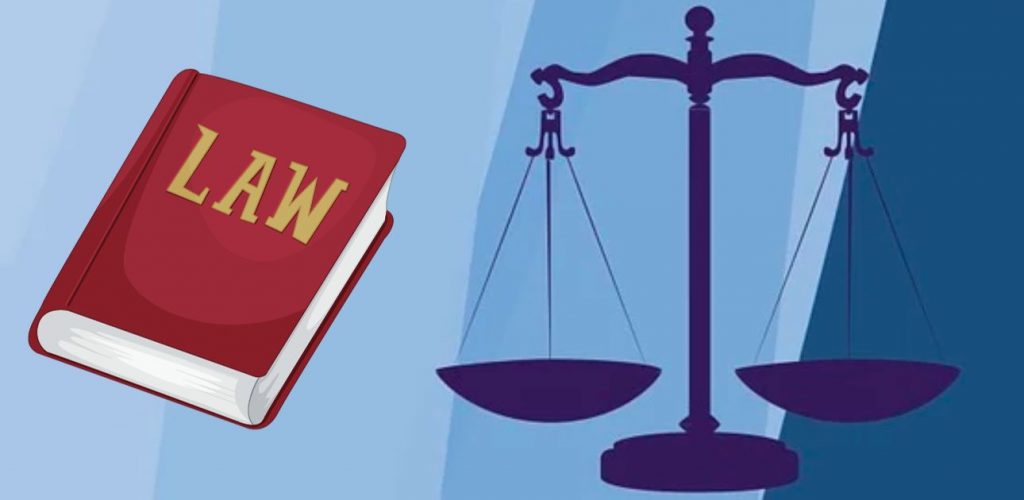When embarking on a construction project, hiring the right legal professional can make a significant difference in the outcome. A specialized construction lawyer in Sydney can navigate the complexities of construction law and safeguard your interests. This article delves into the essential factors to consider when selecting a construction lawyer to guide your project successfully.
Understanding the Role of a Construction Lawyer
A construction lawyer specializes in legal issues related to the construction industry. Their expertise encompasses various stages of construction projects, from initial contracts to dispute resolution. Understanding their role can clarify how they contribute to the success of your project and protect your interests.
Key Responsibilities of a Construction Lawyer
Construction lawyers or construction lawyer sydney perform several key responsibilities that are vital for any construction project. They review contracts to ensure they comply with local laws and regulations, advise clients on their rights, and help negotiate terms that are favorable to the parties involved. Additionally, they can represent clients in litigation, mediation, or arbitration should disputes arise.
Another responsibility includes providing legal opinions on compliance with zoning laws, handling permits, and ensuring that all necessary documentation is correctly filed. They act as a liaison between clients and regulatory bodies, reducing potential legal hurdles associated with construction projects. This role is particularly critical in navigating the complex web of local, state, and federal regulations that can impact construction timelines and costs. For instance, a construction lawyer can help clients understand the intricacies of environmental regulations, ensuring that projects adhere to sustainability standards and avoid potential fines.
Importance of a Construction Lawyer in a Project
The importance of integrating a construction lawyer into your project cannot be overstated. Their expertise minimizes the risk of costly delays and disputes, which can derail timelines and budgets. By ensuring that every legal aspect of the project is handled correctly, they provide peace of mind that your investment is protected.
Furthermore, construction lawyers are pivotal in developing strategies to mitigate risks. Whether it’s drafting detailed contracts or negotiating with vendors and subcontractors, their proactive approach can save clients both time and money in the long run. They also play a crucial role in educating clients about their obligations and rights under the law, which can empower project managers and stakeholders to make informed decisions. This educational aspect is essential, as it fosters a collaborative environment where all parties are aware of potential pitfalls and best practices, ultimately leading to smoother project execution.
Factors to Consider When Choosing a Construction Lawyer
Selecting the right construction lawyer requires careful consideration of several factors. Understanding these can equip you with the knowledge needed to make an informed decision.
Experience and Expertise
Experience in the construction field is crucial when selecting a lawyer. It’s essential to choose a lawyer who has handled cases similar to yours and has a deep understanding of construction law. A lawyer with a track record of successful negotiations and favorable outcomes in construction litigation will be better equipped to navigate your project’s complexities.
Additionally, consider their expertise in specific areas, such as contract disputes, construction defects, or project financing, which may be relevant to your project. A lawyer who specializes in your area will likely have valuable insights and strategies to overcome obstacles confidently. Furthermore, their familiarity with local regulations and industry standards can be a significant advantage, as construction laws can vary widely by jurisdiction. This localized knowledge can help ensure compliance and mitigate risks associated with your project.
Reputation and Reviews
Before making a final decision, it’s wise to research the lawyer’s reputation in the industry. Look for client testimonials, professional credentials, and what peers say about their work. Online reviews and ratings can provide insights into their reliability and effectiveness.
Consider reaching out to individuals or businesses who have previously engaged the lawyer’s services. Asking questions about their experiences can give you a well-rounded understanding of what to expect. Additionally, you might want to check if the lawyer has received any awards or recognition from legal associations, which can further validate their standing in the construction law community. Networking within industry circles can also yield recommendations that lead you to reputable legal professionals who have a proven track record.
Communication and Availability
Effective communication is vital in the legal landscape, especially in construction projects. Your lawyer should be someone who is accessible and responsive to your questions and concerns. Clear communication prevents misunderstandings, fosters trust, and keeps your project moving smoothly.
Evaluate their availability during the initial consultation. A lawyer who is too busy may not dedicate the time necessary for your particular project, leading to potential delays. Make sure to assess their workload and confirm that they will be available throughout your project’s duration. It’s also beneficial to inquire about their preferred communication methods and frequency of updates. A lawyer who utilizes modern technology for communication, such as video conferencing or project management tools, can enhance collaboration and keep you informed in real-time, ensuring that you are always in the loop regarding your project’s progress and any legal developments that may arise.
The Selection Process for a Construction Lawyer
The process of selecting a construction lawyer should be systematic and thorough. Taking the time to review potential candidates can save you significant frustration and potential legal troubles later on.
Initial Research and Shortlisting
Begin the process by conducting research to identify potential lawyers specializing in construction law. Utilize online directories, legal associations, and word-of-mouth recommendations to create a shortlist of candidates.
Once you’ve compiled your shortlist, review each lawyer’s website to understand their services, specialties, and previous case successes. This information can help you narrow your choices further. Additionally, consider looking for client testimonials or case studies that highlight their expertise in handling similar projects. This can provide insight into their effectiveness and the level of satisfaction among previous clients.

Interviewing Potential Candidates
After shortlisting, arrange interviews with each lawyer to discuss your project’s unique requirements and assess their fit. Prepare a list of questions that cover their experience, approach to projects, and strategies for managing disputes.
During these interviews, pay attention to their communication style, confidence in addressing issues, and whether they seem genuinely invested in your project. These interactions often provide cues about how they might handle your case. It may also be beneficial to ask about their familiarity with local regulations and industry standards, as this knowledge can be crucial in navigating the complexities of construction law. Furthermore, inquire about their network of professionals, such as architects and engineers, which can enhance collaboration and streamline the legal process.
Making the Final Decision
After gathering all the necessary information, it’s time to make your final decision. Weigh the pros and cons of each candidate based on your assessments during interviews and research findings.
Consider factors such as compatibility, fees, and responsiveness in your evaluation. Trust your instincts—choosing someone you feel comfortable with can contribute to a more productive working relationship. Additionally, think about the lawyer’s availability and willingness to engage in ongoing communication, as construction projects often require timely legal advice and support. A lawyer who is proactive and accessible can make a significant difference in the smooth progression of your project, ensuring that potential issues are addressed before they escalate into larger disputes.
Legal Considerations in Construction Projects
Understanding the legal landscape surrounding construction projects is crucial for any client. Being aware of common legal issues can help you navigate potential pitfalls effectively. The construction industry is inherently complex, and the interplay of various legal frameworks can significantly impact project timelines and budgets. Therefore, a comprehensive grasp of these legal considerations not only safeguards your investment but also enhances the overall success of the project.
Common Legal Issues in Construction
Construction projects can face various legal challenges, including contract disputes, delays, and compliance issues. Disputes between contractors and clients often arise from vague contracts or unmet deadlines. Additionally, the intricacies of subcontractor agreements can lead to misunderstandings, especially if roles and responsibilities are not clearly defined. The lack of clarity can create friction among parties, ultimately affecting the project’s progress and financial viability.
Other common issues include violations of zoning laws, improper permitting, and disputes over project scope changes. For instance, failing to secure the necessary permits can halt a project in its tracks, leading to costly delays and potential fines. By being aware of these potential problems, you can take proactive measures to avoid them. Engaging legal counsel familiar with local regulations can provide invaluable insights and help ensure compliance from the outset.
Preventive Measures to Avoid Legal Problems
Preventing legal problems requires diligence and foresight. Start by ensuring that all contracts are thoroughly reviewed and well-drafted, leaving no room for ambiguity. It is advisable to include detailed clauses that outline the scope of work, payment schedules, and procedures for handling disputes. Regular communication with all stakeholders can also ease concerns before they escalate into disputes. Establishing a routine for progress meetings can foster transparency and keep everyone aligned on project goals.
Implementing clear project management practices will help keep all parties accountable. Establish protocols for documenting changes and decisions made during the project to create a paper trail that can resolve disputes quickly. Additionally, consider utilizing technology solutions such as project management software, which can streamline communication and documentation efforts. This proactive approach not only minimizes risks but also enhances collaboration among team members, ultimately leading to a smoother construction process.
See Also : What Is Building and Construction Law? A Guide for Homeowners
The Cost of Hiring a Construction Lawyer in Sydney
Understanding the financial aspect of hiring a construction lawyer is essential before committing to legal assistance. Legal services can vary significantly in cost, depending on the lawyer’s experience, reputation, and the complexity of the project.
Understanding Legal Fees and Charges
Construction lawyers may charge by the hour, offer fixed fees, or work on a contingency basis. Knowing the fee structure beforehand can help you manage your budget effectively.
Make sure to clarify the cost estimates during your initial discussions, asking about potential additional charges for services such as court appearances or document preparation.

Budgeting for Legal Services in Your Project Plan
Incorporating legal fees into your overall project budget is crucial. Assessing the scope and potential complexities of your project can help you estimate legal costs accurately. By budgeting for these services, you can avoid financial surprises and ensure adequate resources are allocated for legal support.
Consider consulting with your construction lawyer to gain insights into typical costs associated with projects similar to yours. This collaborative approach can aid in setting realistic expectations and allow your project to proceed without financial stress.
In conclusion, hiring the right construction lawyer in Sydney is a critical step towards ensuring the success of your construction project. By understanding their role, conducting thorough research, and evaluating multiple factors, you can find a lawyer who will effectively advocate for your interests.















